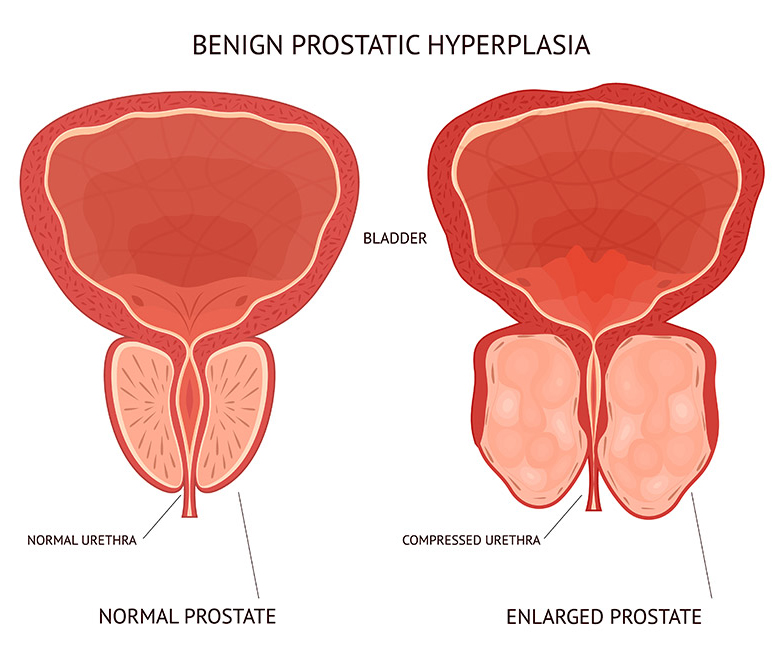
Benign Prostatic Hyperplasia (BPH), also known as prostate gland enlargement, is a common condition among men, especially those over 50. This non-cancerous condition can disrupt urinary health and lead to serious complications if left untreated. Learn everything about BPH, including its symptoms, diagnosis, and the most effective treatment options.
The prostate gland is a key part of the male reproductive system, located just below the bladder. As men age, the prostate can enlarge, a condition known as BPH. While BPH is benign and not linked to prostate cancer, it can cause uncomfortable urinary symptoms by compressing the urethra.
Men with BPH may experience a range of symptoms, including:

Men with BPH may experience a range of symptoms, including:
If symptoms worsen, it can lead to acute urinary retention, which is a medical emergency.
Early detection of BPH allows for more effective management. Common diagnostic methods include:
A doctor reviews symptoms and performs a digital rectal exam to assess prostate size. A bladder ultrasound is usually performed to measure the size of the prostate. A PSA is also performed to ensure the prostate is free from cancer in the same setting.
Patients track urination patterns over 72 hours, including fluid intake and nocturnal voiding may be required.
Advanced testing to evaluate bladder function and urine flow.
If you think you may be presenting symptoms of BPH, schedule a consult as soon as possible.
Managing BPH involves lifestyle adjustments, medications, or surgical procedures depending on the severity of symptoms.

Ignoring BPH symptoms can lead to severe complications like bladder damage and kidney issues. Early intervention through lifestyle changes or medical procedures can restore urinary health and improve overall well-being. Nocturia is a significant risk factors for fall in the elderly. Tripping on furniture in a dark room can be catastrophic especially if blood thinning medications. Improving the overall sleep quality also improve quality of life for the elderly.
Our friendly team is looking forward to serving you.
For urgent enquiries and appointment requests, please call the clinic directly.